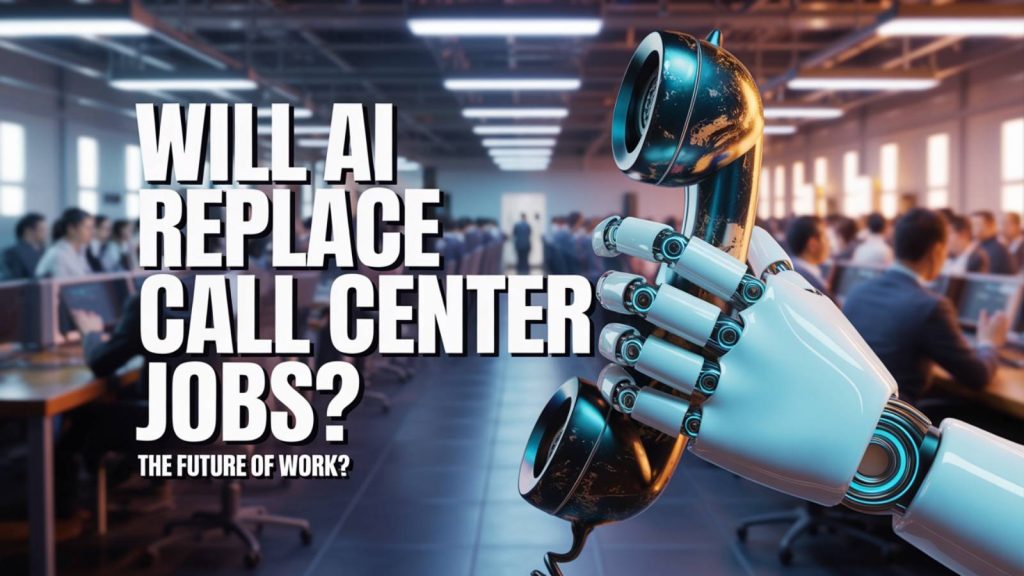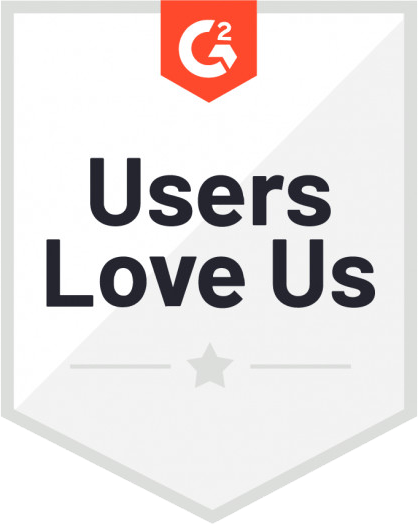Will AI Replace Call Center Jobs?
AI will not completely replace call center agents by 2025. Instead, 95% of companies plan to keep human workers while using AI for routine tasks in a hybrid model.

The call center industry employs over 4.2 million people in the United States alone. These workers face real concerns about their job security as AI technology advances rapidly. But the evidence shows a different story than what many fear.
This shift represents the biggest change in customer service since the invention of the telephone. Companies are discovering that AI voice automation works best when it supports human agents rather than replacing them entirely.
What the Data Really Reveals About AI and Jobs
The numbers tell a surprising story about AI’s real impact on call center employment. Recent market research reveals that while AI adoption is accelerating rapidly, most companies are choosing collaboration over replacement. Here are the key statistics shaping the industry’s future:
🎯 Key Market Insights
- AI call center market: $3.23B in 2024 → $25.84B by 2034
- 76% of contact centers plan to invest in AI within two years
- Only 12% of executives see complete automation as the future
- 90% believe AI will help employees reach full potential
Multiple surveys reveal surprising facts about AI adoption. The Brookings Institution found that 86% of customer service tasks have “high automation potential.” However, this doesn’t mean AI will handle all these tasks immediately.
⚠️ Reality Check: AI Limitations
Amazon Fresh Example: Their “AI-driven” shopping experience actually required thousands of human workers in India watching customers through cameras and stepping in when AI failed.
GM Chatbot Fail: A GM chatbot famously offered to sell a Chevrolet Tahoe for $1 after being tricked by a customer.
These examples show that AI contact centers still need significant human oversight to function properly.
🤝 The Hybrid Model: Why AI and Humans Work Better Together
The most successful call centers are discovering that AI and human agents complement each other perfectly. Rather than competing for the same tasks, each handles what they do best. Here’s how the workload divides in effective hybrid models:
🤖 Best AI Tasks
- Answering frequently asked questions
- Scheduling appointments and callbacks
- Processing basic account information
- Routing calls to right departments
- Collecting customer feedback
- Updating customer records
👥 Best Human Tasks
- Handling angry or upset customers
- Solving complex technical problems
- Making judgment calls on refunds
- Building relationships with high-value clients
- Training and mentoring new team members
- Managing escalated complaints
Proven Results
A study of 5,000 call center agents found that AI tools increased productivity by 14%. The biggest improvements came from novice workers, while experienced agents saw smaller gains.
Customer service AI works best when it provides real-time suggestions and information to human agents rather than replacing them entirely.
Industry Impact: Which Sectors Face the Most Change
Not all industries will experience AI adoption at the same pace. Customer expectations, regulatory requirements, and complexity levels vary significantly across sectors. Here’s how different industries rank for AI implementation:
🔴 High AI Adoption
- Banking and financial services
- Telecommunications
- E-commerce and retail
- Travel and hospitality
Basic inquiries, account checks, order tracking
🟡 Moderate AI Adoption
- Insurance
- Utilities
- Technology companies
- Transportation
Claims processing, billing, technical support
🟢 Lower AI Adoption
- Healthcare
- Legal services
- Real estate
- Emergency services
Sensitive discussions, complex consultations
Healthcare call center AI faces unique challenges due to privacy regulations and the sensitive nature of medical information. Similarly, real estate call center AI must handle complex property discussions and emotional decisions.
Timeline: How Fast Will These Changes Actually Happen
The transition to AI-enhanced call centers will be gradual rather than sudden. Industry experts have mapped out realistic timelines based on current technology capabilities and market adoption rates. Here’s what to expect in each phase:
Current Reality
- AI handles 60-70% of routine interactions
- Basic call routing and FAQ responses become standard
- Advanced AI voicemail systems widespread
- Human agents focus on complex problem-solving
Near Future
- AI handles more complex queries
- Better voice recognition and natural language processing
- Improved integration with existing software
- Hybrid models become industry standard
Long-term Vision
- AI handles 80-90% of initial interactions
- Human agents focus on escalated cases
- New job categories in AI training and monitoring
- Higher customer expectations for personalized service
🚧 Factors Slowing Full AI Adoption
The Call Center Evolution: Old Way vs New Way
See how the industry is transforming from the chaotic “good old days” to the streamlined AI-human hybrid approach.
The “Good Old Days” (Pre-AI Era)
When humans did everything… and suffered for it
Customer Calls
“Please hold while I transfer you for the 5th time today”
Agent Panic Mode
“Let me put you on hold while I frantically Google your problem”
Manual Information Hunt
“I need to check 6 different systems and ask my supervisor’s supervisor”
Endless Wait Times
“Your call is important to us… *elevator music for 20 minutes*”
Agent Burnout
“I’ve answered ‘What’s my account balance?’ 247 times today”
Customer Leaves Angry
“I’m switching to your competitor. This was painful.”
The Hybrid Future (AI + Human)
Where technology meets humanity
AI Instant Triage
“Hello! I understand you need help with… *already knows everything*”
Lightning-Fast Responses
“Your account balance is $247.83. Anything else I can help with?”
Smart Decision Point
“This seems complex… Let me connect you to Sarah, our relationship expert”
AI Handles Simple
“Problem solved in 30 seconds!”
Agent Satisfaction
“I love solving interesting problems instead of repeating FAQs!”
Customer Loves Experience
“Wow, that was actually pleasant! You’ve got a customer for life.”
Career Evolution: New Opportunities in an AI-Powered World
AI is creating entirely new job categories while transforming existing roles. Workers who adapt early will find the most opportunities in this evolving landscape. Here are the emerging career paths and evolving positions:
💼 Emerging Job Categories
🎓 AI Trainers and Specialists
Teach AI systems how to handle specific customer scenarios. Create training data, test AI responses, and improve system accuracy.
🔍 Quality Assurance Analysts
Monitor AI performance alongside human agents. Track satisfaction scores, identify AI failures, recommend improvements.
🎯 Customer Experience Orchestrators
Manage complex customer journeys across multiple channels. Coordinate between AI systems, human agents, and departments.
🔄 AI-Human Collaboration Specialists
Optimize handoffs between AI and human agents. Ensure smooth transitions and train teams on AI tools.
📈 Evolving Traditional Roles
Job Satisfaction Increase: Companies report that agents working with AI tools show higher job satisfaction. They spend less time on repetitive tasks and more time on interesting, challenging work.
Practical Steps for Staying Relevant in the AI Era
Call center professionals can take specific actions today to future-proof their careers. The most successful workers will be those who learn to collaborate with AI rather than resist it. Here are the essential skills and strategies for success:
🎯 Essential Skills Development
🏆 Positioning Yourself for Success
Volunteer for AI Pilot Programs
Early adopters gain valuable experience and often become team leaders for implementation.
Focus on Customer Relationships
Develop expertise in building long-term relationships where humans maintain clear advantages.
Learn Multiple Channels
Provide consistent service across phone, chat, email, and social media platforms.
Develop Coaching Skills
Train both people and AI systems as teams become more diverse with AI tools.
🧠 The Right Mindset
The most important shift involves viewing AI as a powerful assistant rather than a threat. Workers who embrace this perspective and actively learn to collaborate with AI tools will find the most opportunities.
Frequently Asked Questions
🚀 Ready to Explore AI for Your Business?
Discover how the hybrid approach can enhance your customer service operations while supporting your team members.
MissNoCalls’ AI-Powered Solutions for the Hybrid Future
Experience the perfect balance of AI efficiency and human touch with our comprehensive suite of intelligent call center solutions designed for the evolving workplace.
Customer Service AI
Revolutionize your customer service with advanced AI capabilities that handle routine inquiries while seamlessly escalating complex issues to human agents for personalized care.
Sales Call AI
Boost your sales efforts with AI-powered lead qualification and insights, freeing your human agents to focus on relationship building and closing deals.
Advanced AI Voicemail
Never miss a crucial message with intelligent call management that prioritizes, categorizes, and routes voicemails to the right human agents for follow-up.
24/7 AI Voice Agents
Deploy always-available AI agents that work around the clock, handling basic inquiries and collecting information for your human team to provide exceptional follow-up service.
Healthcare Call Center AI
Specialized AI solutions for healthcare environments, ensuring HIPAA compliance while supporting medical staff with appointment scheduling and basic patient inquiries.
Real Estate Call Center AI
Enhance your real estate operations with AI that qualifies leads and schedules viewings, allowing your agents to focus on closing deals and building client relationships.
Ready to Transform Your Call Center?
Join thousands of businesses already using AI to enhance their customer service while empowering their human teams.








